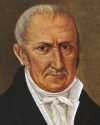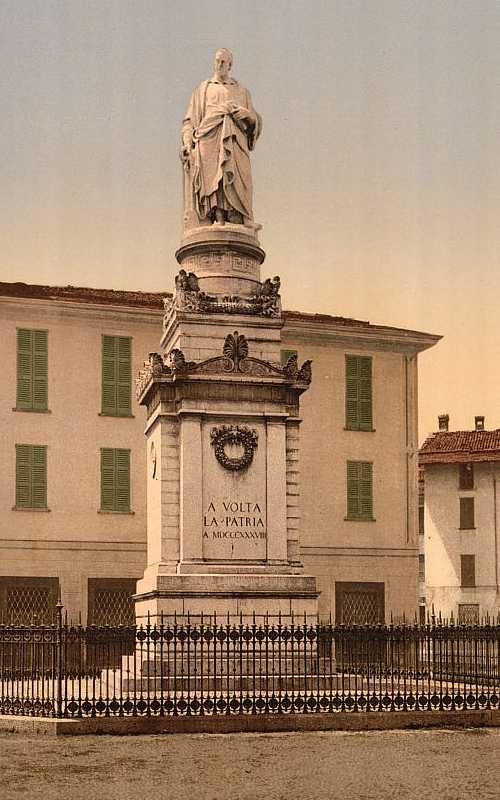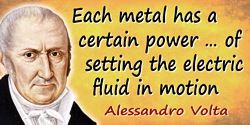 (source)
(source)
|
Count Alessandro Giuseppe Antonio Anastasio Volta
(18 Feb 1745 - 5 Mar 1827)
Italian physicist who invented the first battery, able to supply a sustained current of electricity.
|
Alessandro Volta Monument
Photolithograph (c. 1890-1900)
On 29 Apr 1878, “a monument, in memory of the great physicist, Alessandro Volta, was unveiled at Pavia. Most of the Italian Universities, and several foreign scientific societies had sent deputies to Pavia University for this event. The monument is a masterpiece of the sculptor Tantardini of Milan. The ceremony of unveiling was followed by a dignified celebration at the University, and upon that occasion the following gentlemen were elected honorary doctors of the scientific faculty: Professors Clerk Maxwell (Cambridge) and Sir W. Thomson (Glasgow); M. Dumas (Paris), Dr. W. E. Weber (Leipzig); Professors Bunsen (Heidelberg) and Helmholtz (Berlin), Dr. F. H. Neumann (Koenigsberg), and Dr. P. Riess (Berlin).”
[Alessandro Volta was a physicist at the University of Pavia. The memorial was unveiled about 51 years after his death. The image is not a colour photo, but actually a richly colored Photolithograph c.1890-1900, by Detroit Publishing Company (1905), in the Library of Congress Photochrom Prints Collection. ]
- Science Quotes by Count Alessandro Giuseppe Antonio Anastasio Volta.
- 18 Feb - short biography, births, deaths and events on date of Volta's birth.
- Alessandro Volta - Illustration of Volta from Robert Millikan's textbook, A First Course in Physics (1906).
- Alessandro Volta - Enlarged Details of Illustration Border from Robert Millikan's textbook.
- Sketch of Alessandro Volta - biography and image from Popular Science (May 1892).
- Volta: Science and Culture in the Age of Enlightenment, by Giuliano Pancaldi. - book suggestion.
- Booklist for Alessandro Volta.






